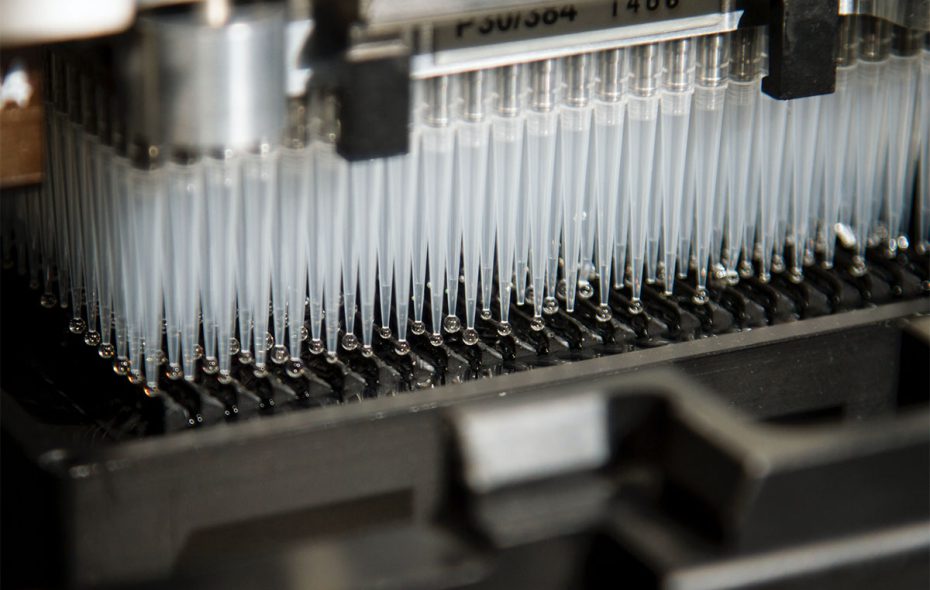
Quethera, a biopharmaceutical company developing therapies for ocular disorders, today presented strong efficacy data at the 2017 Association for Research in Vision and Ophthalmology (ARVO) conference showing its gene therapy QTA020V resulted in a 61% reduction in retinal ganglion cell (RGC) loss in a widely used experimental model of glaucoma. In addition, the company presented two further posters detailing the design and initial testing of the gene therapy constructs in vitro and in vivo, showing that the transgene is efficiently processed into two separate proteins that significantly increase RGC survival in two different animal models of optic nerve injury.
QTA020V gene therapy acts via the neurotrophin Brain Derived Neurotrophic Factor (BDNF) signalling pathway. In independent studies, patients with glaucoma have been observed to have reduced serum levels of BDNF compared to controls without glaucoma. Quethera has shown that QTA020V can efficiently transfect RGCs, elevate levels of mBDNF and the TrkB receptor and protect against RGC loss.
In a chronic ocular hypertension in vivo model, RGC survival in QTA020V-treated animals was significantly increased from 46% to 84% in the peripheral retina, the region most susceptible to glaucoma damage in humans. A second acute nerve crush in vivo model showed 67% more surviving RGC than control vector injected eyes.
Glaucoma is the most common cause of irreversible blindness and involves progressive death of RGC which connect the eye to the brain. By the year 2020, it is estimated that there will be almost 80 million people in the world with glaucoma as people survive longer into old age. Lowering IOP using drugs, laser treatment or surgery is currently the only treatment proven to slow visual loss in glaucoma, but around 13% of patients with glaucoma go blind in at least one eye despite IOP lowering treatment. Once lost, vision cannot be recovered and there is therefore a great unmet medical need for new treatments that reduce visual deterioration in patients with progressive glaucoma, including those with eye pressures within the normal range.
Quethera’s founder Dr. Widdowson said “The data show that our dual-gene single vector construct can efficiently transfect RGC and significantly improve their survival. Quethera’s QTA020V gene therapy can provide strong, long-lasting neuroprotection with a mechanism of action that potentially overcomes the TrkB receptor downregulation that occurs with BDNF treatment alone.”
Oliver Sexton, Investment Director at UK Innovation & Science Seed Fund, an early-stage investor in Quethera, commented: “The data offer hope of a potential therapy for the large number of glaucoma patients deteriorating despite conventional treatment for whom the risk of blindness is very real.”
About Quethera Ltd
Quethera was founded in 2015 by Dr. Peter Widdowson and Professor Keith Martin in Cambridge, UK. The company is developing neuroprotective therapies including a lead candidate to reduce progressive visual loss in glaucoma and other conditions affecting the optic nerve as well as CNS and hearing disorders. Quethera’s seed funding was led by UK Innovation & Science Seed Fund alongside co-investment from Cambridge Enterprise.
For more information contact info(at)quethera(dot)com or visit http://www.quethera.com.
About Cambridge Enterprise
A wholly owned subsidiary of the University of Cambridge, Cambridge Enterprise Limited is responsible for the commercialisation of University intellectual property. It provides access to early stage capital through the Cambridge Enterprise Seed Funds, University of Cambridge Enterprise Funds and Cambridge Enterprise Venture Partners, and offers business planning, mentoring and related programmes. Activities include management and licensing of intellectual property and patents, proof of concept funding and support for University staff and research groups wishing to provide expert advice or facilities to public and private sector organisations. For more information, please visit: http://www.enterprise.cam.ac.uk